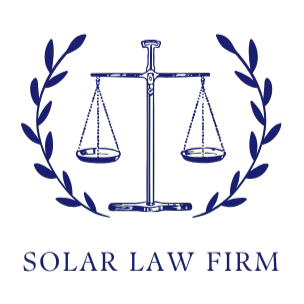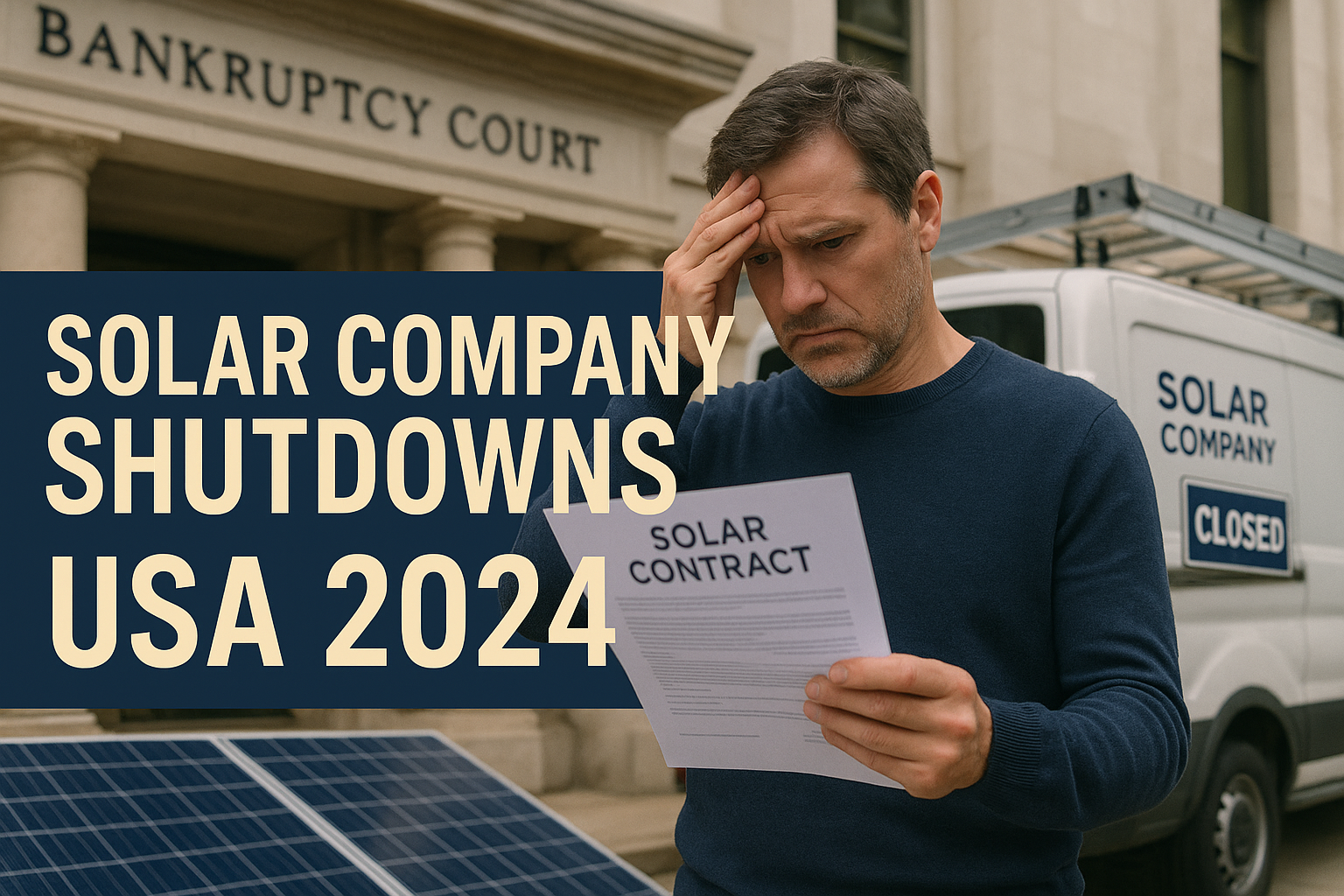The year 2024 was a turbulent one for the U.S. solar industry. Several solar companies—some of which were once considered industry leaders—unexpectedly shut down, leaving thousands of homeowners confused, frustrated, and vulnerable. From supply chain struggles to financial mismanagement and shifting government policies, a variety of factors played a role in these closures.
In this article, we’ll break down what caused solar companies to go out of business in 2024, how it impacted homeowners, and what legal options are available if you’re affected.
Key Reasons Solar Companies Shut Down in 2024
1. Economic Pressures and Rising Interest Rates
As inflation persisted and interest rates surged, financing for solar projects became more expensive. Many companies relied on customer financing and lease models, which suddenly became harder to sustain. This discouraged new installations and shrank their cash flow.
2. Supply Chain Disruptions
Global supply chain issues from previous years spilled into 2024. The availability of panels, batteries, and inverters continued to lag behind demand, causing delays in installations and increased costs. Smaller solar firms couldn’t absorb these hits and were forced to close operations.
3. Policy and Incentive Changes
While the Inflation Reduction Act promised long-term benefits, short-term adjustments in local and state-level incentives caught some companies off guard. Reduced net metering benefits in key states like California led to customer cancellations and lower revenue.
4. Overexpansion and Poor Business Management
Several solar companies—most notably Titan Solar Power, Pink Energy, and ADT Solar (formerly SunPro)—expanded rapidly in recent years without securing long-term profitability. When financial or legal trouble hit, they lacked the resources or planning to survive.
What This Meant for Homeowners
Thousands of solar customers across the U.S. were left with:
- Unfinished installations
- System malfunctions with no support
- Voided warranties and service contracts
- Unexpected loan obligations for non-functional systems
For homeowners, the collapse of their solar provider raised serious legal and financial questions. Who’s responsible for repairs? Can you cancel your solar loan? What happens to your tax credits?
Legal Remedies and How Our Solar Law Firm Can Help
If your solar installer went out of business in 2024, you’re not alone—and you have legal rights.
At our firm, we specialize in:
- Reviewing solar contracts and financing agreements
- Holding manufacturers or financiers accountable
- Recovering compensation for damages or faulty installations
- Providing legal guidance for solar warranty and service issues
Tips to Protect Yourself Moving Forward
If you’re planning to install solar or are already a solar homeowner, here are some precautions to take:
- Vet the company’s financial health and track record.
- Understand your contract thoroughly, especially who’s responsible for maintenance.
- Choose financing carefully, ideally with backup options if the installer fails.
- Keep documentation of all communications, warranties, and service agreements.
Final Thoughts
The collapse of multiple solar companies in 2024 serves as a wake-up call for both homeowners and the industry. While solar energy remains a smart long-term investment, due diligence and legal awareness are more important than ever.
If you’ve been affected by a solar company going out of business, don’t navigate the legal maze alone. Contact our solar law experts today for a consultation and let us help you secure your rights and your energy future.


